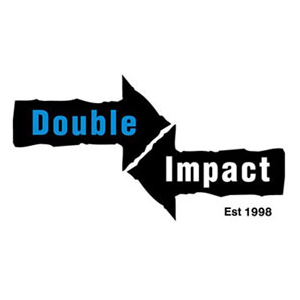Drug & Alcohol Rehab in Mansfield

How Does Rehab Work?
Rehab involves the support services and therapies that people who have drug and alcohol dependence receive to beat addiction and subsequent relapse. As soon as a medical assessment and detox are completed, individuals will receive addiction treatment in the form of therapy. Treatment is made up of therapy from a professional counsellor, the attendance of group meetings as with a 12 Step programme, and the option of inpatient or outpatient rehabilitation. Inpatient rehab services require that clients live at the residence or centre for the duration of therapy. Outpatients will attend therapy by counselling or meetings but will not stay at the facility. Consultation with a medical expert along with an individual assessment will help decide if inpatient or outpatient services are suited to your needs.
What Happens During Residential Rehab?
Rehab is the first brave step towards recovery and sober living. It can be difficult to work on quitting addictive behaviours on your own but with the support of professional intervention, a substance-free life can be achieved. You may have concerns about the unknown; however, a breakdown of the process can help put your mind at ease.
Rehab occurs in stages. It starts with a medical assessment. Individuals must be professionally assessed to help staff understand the nature of your dependence, its history and comorbid disorders (such as bipolar or schizophrenia). The information obtained from the assessment is used to create a unique therapy programme for you. Because every person is different, a personalised treatment plan will help provide a more tailored programme that meets your needs and requirements.
Detox is an essential step of a recovery programme. It involves the safe removal of drugs and/or alcohol from the body. When detox is performed under medical supervision, withdrawal symptoms can be controlled, and their severity managed. This can significantly increase the odds of success and minimise relapse.
Therapy is an important part of rehab and every aspect of addiction treatment must be tailored to address individual backgrounds, substance dependencies, and circumstances. Interventions can range from private counselling and cognitive behavioural therapy to developing coping strategies, skills, and attending group meetings.
1. Assessment

A medical assessment is performed before treatment to identify medical history, and alcohol or drug use over time. If you are searching for residential treatment, an admissions team will provide a telephone assessment. An assessment by telephone assists the treatment facility deliver a customised treatment programme. It also helps medical staff to manage the individual during detox.
Whether you or someone you care about require professional support to overcome substance addiction, it all begins with an individual assessment. Assessments are important to the success of therapy because it determines the type of therapeutic plan based on the addiction and potential comorbidities (depression or anxiety).
2. Detox

If you are dependent on drugs and/or alcohol or you have a substance in your body, you must undergo detoxification before you can proceed with a therapeutic programme. Detox is performed in an inpatient facility or a medical facility. During detoxification, the substance is gradually cleared from the body which usually results in withdrawal symptoms.
The reason medical detoxification from substances is advised is owed to the difficulties and the nature of withdrawal symptoms that may occur during this time. Without reliance on a professional service and medical attention, the risk of relapsing is heightened. Individuals who receive detox and an assessment will be required to participate in a therapeutic programme that involves inpatient rehab or outpatient services.
3. Therapy

Therapy is sought when the body is rid of drugs and/or alcohol. The choice of being assigned to an inpatient or an outpatient service will depend on the individual assessment, finances and life commitments. Therapy provided in treatment ranges from individual counselling with a therapist, the attendance of group therapy, and emphasis on building positive coping mechanisms and life skills.
Step by Step Process for Residential Rehab
To understand your medical and mental health history.
Arrange a suitable date to begin your journey to recovery.
Begin the managed withdrawal process from substances including alcohol.
To understand the root cause of addiction and how to overcome it.
Aftercare is provided to help manage the risk of relapse.
To help heal the wounds that addictive behaviour has caused others.
Find your Nearest Rehab Centre in Mansfield
The nearest rehab centre is Addiction Rehab UK – Drug & Alcohol Rehab Nottingham.
Address: Addiction Rehab UK – Drug & Alcohol Rehab Nottingham, Vernon House, 109 Friar Ln, Nottingham NG1 6DQ, United Kingdom
Call 0333 4444 432 to discuss your alcohol or drug rehab requirements and any other questions you may have about the process of residential rehab.
Outpatient Addiction Services in Mansfield
From inpatient to outpatient services, the right treatment for substance addiction will depend upon the assessment and budget to determine the appropriate treatment for your needs. For those who are interested in the flexibility and the affordability of outpatient addiction services, we look closer at what it entails compared to an inpatient programme.
An outpatient programme does not require individuals to stay at the clinic for treatment. If you have work, family, or other lifestyle commitments, outpatient services allow you to focus on these commitments while visiting a facility or counsellor to receive addiction therapy and other support services.
If you are interested in pursuing outpatient treatment, it is vital to find a relevant programme for your needs. Outpatient services range from paid private counselling to free charitable organisations specialising in substance dependence.
NHS Free Addiction Services in Mansfield

Unit 2 & 3 Sherwood Court Sherwood Street Mansfield Nottinghamshire NG18 1ER
WebsiteThe Benefits of Outpatient Services
Private outpatient plans are tailored to the individual’s needs. The purpose is to offer the best standard of care and intervention for recovery from dependence. – Outpatient support is considered flexible because individuals with families and work commitments can continue to manage these areas of life while attending weekly or twice-weekly counselling sessions. – It is also cheaper compared to inpatient rehab services.
The Challenges of Outpatient Services
Outpatient services will always have a crucial role in rehab but for drug or alcohol addiction, remaining in the same environment with access to substances and the usual social circles may risk relapse. Furthermore, free outpatient services provided by the NHS or UK-based charities do not provide the same tailored programme that private outpatient services provide, and there is typically a waiting list before you can be accepted for treatment.

How Much Does Rehab Services Cost in Mansfield?
Alcohol & drug rehab within a residential centre can cost between £1500 – £4000 per week. Residential rehabilitation is one of the costlier forms of treatment for drug and alcohol dependency. For free and affordable services, charity organisations and government funded services offer care programmes for all individuals seeking recovery.
The NHS and charities including Turning Point will require a self-referral to be considered for addiction treatment. You can also find many other affordable services (such as private counselling) or free therapies and community-supported services for those with drug and alcohol addiction. These groups include AA or Alcoholics Anonymous, Narcotics Anonymous, and Cocaine Anonymous.
Support Groups in Mansfield

Edwinstowe As Bill Sees It
St Mary's Church Rooms, Mansfield Rd NG21 9NJ

Step and Tradition Discussion
St John's Carrington Mansfield Rd Nottingham NG5 2DP UK

Bring Your Book - Big Book Study
St John's Carrington Mansfield Rd Nottingham NG5 2DP UK
The Pros and Cons of Seeking Treatment in Your Local Area
Pros
1. You are familiar with the area which may provide a layer of comfort/safety.
2. Family or friends can easily travel to visit or are close by.
3. You may save on the costs of travelling long distances for treatment, or free services may only be offered in your home town.
Cons
1. A local environment means access to drug dealers or other triggers. This is more of a concern if you choose outpatient programmes.
2. Failing to consider locations outside your local area could result in a missed opportunities for more valuable and rewarding programmes.
3. Addiction treatment services that are close by do not always provide the best standard of rehab.
In the event you are unsure about a particular addiction treatment service, you can look to the CQC website for more information including a rating of that service.

